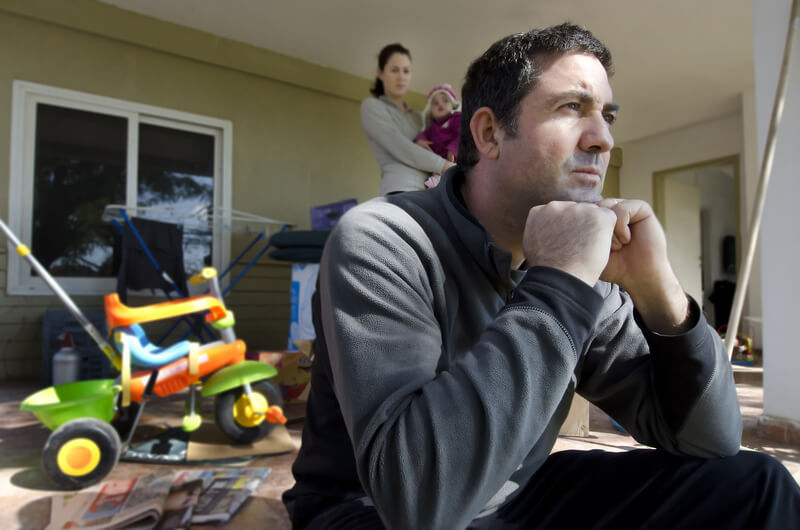Life happens and parents sometimes need to move. But what legal hurdles must you jump over?
This article explores the intricate legal considerations surrounding child custody and relocation. We delve into jurisdictional issues, pivotal standards, and the court process. As a result, you will have the details necessary to navigate the process as smoothly as possible.
Equip yourself with the necessary knowledge to handle this situation today. Read on whether you’re a custodial or noncustodial parent planning a move.
Understanding Child Custody and Relocation: Legal Considerations and Best Practices
Child custody and relocation involve the conditions where a custodial parent can move.
Generally, child custody refers to the rights and responsibilities you have over a child’s upbringing. It has two major types: physical custody and legal custody.
Physical custody refers to where the child will live. However, legal custody pertains to decision-making rights about the child’s life. Both of these elements will be discussed in a child custody evaluation.
Relocation, in this context, refers to a significant change in where the child lives. Nonetheless, not every situation is a legal “relocation.” The distance that qualifies as relocating can vary by jurisdiction, but it often involves a substantial move.
This action might disrupt routines or the noncustodial parent’s ability to maintain a relationship. As a result, there are often legal battles over the modification of the existing agreement.
Legal Considerations for Child Custody and Relocation
Jurisdiction Complications
When understanding child custody and relocation, note that jurisdictional issues can significantly affect child custody and relocation cases. In family law matters, jurisdiction typically depends on the state where a minor has lived for six consecutive months.
Regardless, matters can become complex when one parent wishes to relocate to a different state or country. This circumstance can lead to conflicts. The original court usually retains the power to decide on relocation matters, but not always.
The Best Interests of the Child
The “best interest” standard is a guiding principle in child custody cases. Most courts use this legal doctrine to make their determinations. Nonetheless, the precise definition of what is the best for a child varies. But, in most cases, it involves their physical, emotional, and psychological well-being.
Relocation can affect their best interests in significant ways. For example, a move might disrupt schooling, social connections, or relationship with the non-moving parent. Contrarily, moving could represent an improvement in living conditions or an escape from a harmful situation.
Existing Custody and Visitation Orders
Existing custody and visitation orders often contain provisions specifying how relocation may occur. If the move violates the terms of the order, the relocating parent may need to seek a modification to the custody arrangement. This complex process requires demonstrating a substantial change in circumstances. Moreover, the judge must believe the proposed move would be in the child’s best interest.
Notifying the Other Parent and Seeking Consent
When a custodial parent plans to relocate, it’s essential to notify the other parent. There are specific legal requirements about how and when this must happen. The statement must be in writing and sent a certain period before the move.
Seeking the other parent’s consent can make the process smoother. If the noncustodial parent consents, the court will likely approve the relocation.
If consent is not forthcoming, the relocating parent must petition the court. In this case, the court will weigh several factors:
- The reason for the move
- The other parent’s reasons for objecting,
- What arrangement would serve the child’s best interest
The Legal Process of Child Custody Relocation
Filing a petition for relocation begins with drafting it. Then, this legal document goes to the court that issued the current order. The petitioning parent must serve the other parent with a copy and a summons. If the noncustodial parent objects, they can file a response and have a court hearing.
The petition for relocation should include several key pieces of information. It should clearly state the reasons for the proposed move, such as a new job or to be closer to family. Moreover, it should also provide the new address and any changes to the visitation schedule. If the move would make the current visitation schedule untenable, the petition should suggest a new option.
Seek legal advice when preparing this document. The requirements can vary based on local and state laws, and the process can be nuanced.
You can expect a structured procedure during a court hearing for relocation. Here is a brief overview of what may occur:
- Opening Statements: Both sides will summarize their they will present during the hearing.
- Presentation of Evidence: This process can include documents, witness testimonies, or expert opinions.
- Cross-Examination: Each side can question the other’s witnesses. This stage gives a chance to challenge the credibility of the evidence or to bring out additional facts.
- Closing Statements: This phase is an opportunity for the family law lawyers to summarize the evidence and argue for a favorable ruling.
- Judge’s Decision: The judge may make a decision immediately, or they may issue an order at a later date.
Schedule a Consultation
Now that you have an understanding of child custody and relocation, you know it can be a challenging and emotionally charged process. Every step demands careful consideration and legal understanding. Moreover, the required procedure is daunting without legal guidance.
Each situation is unique, and the law can have wide disparities from place to place. Don’t navigate this challenging journey alone. Ask us for a referral to a local family law attorney to get the support you deserve.
Complete this brief online form or call (866) 345-6784 to talk to a representative 24/7.

